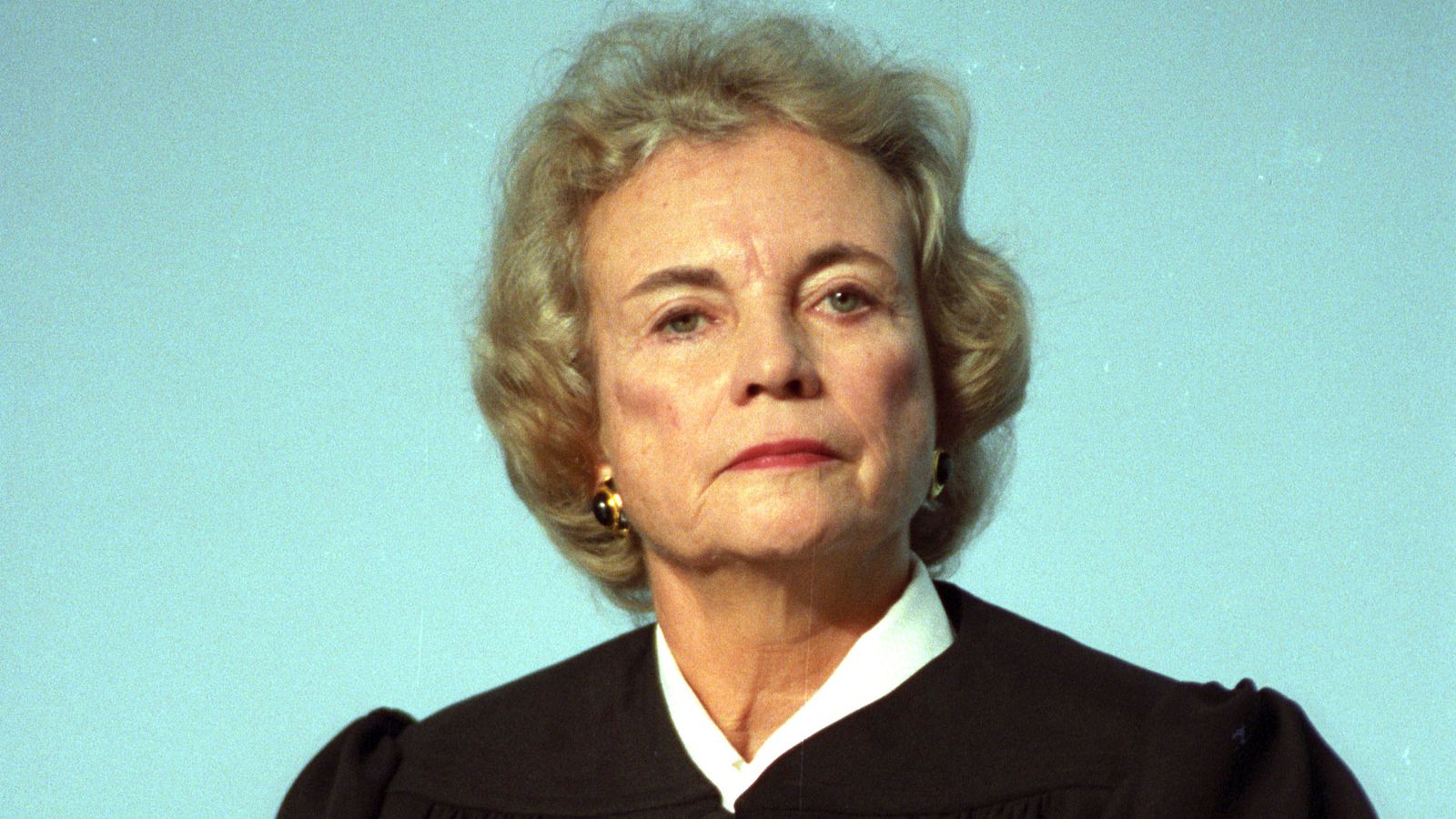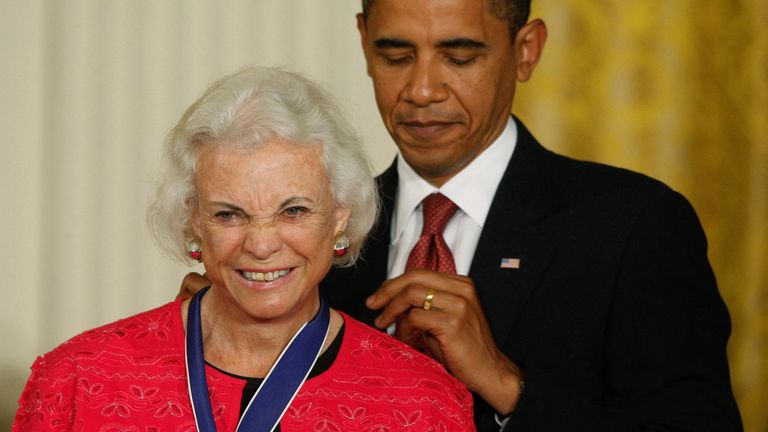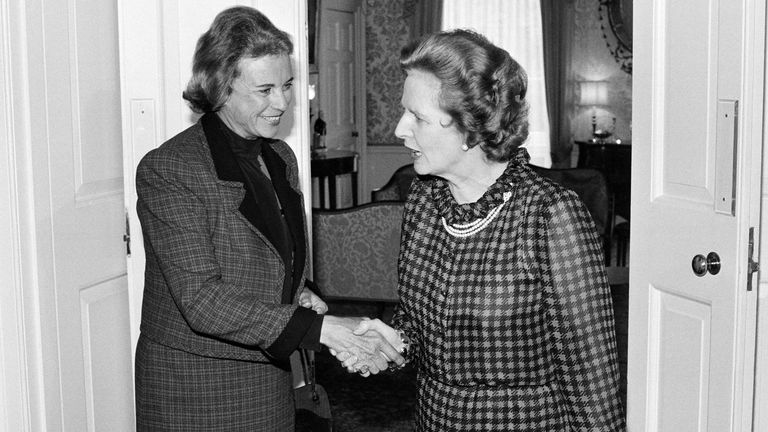Sandra Day O’Connor: First woman on US Supreme Court dies aged 93


Sandra Day O’Connor, the first woman to serve on the US Supreme Court, has died at the age of 93.
She was appointed by Republican ex-president Ronald Reagan in 1981 and retired from America’s highest court in 2006.
Ms O’Connor died in Phoenix of complications related to advanced dementia and a respiratory illness, the court said.
Her nomination and subsequent confirmation by the US Senate ended 191 years of male exclusivity on the bench.
Chief Justice John Roberts said Ms O’Connor “blazed a historic trail as our nation’s first female justice”.
“She met that challenge with undaunted determination, indisputable ability, and engaging candor,” he said.
“We at the Supreme Court mourn the loss of a beloved colleague, a fiercely independent defender of the rule of law, and an eloquent advocate for civics education.”
At a White House ceremony in 2009, Democrat former president Barack Obama presented her with the medal of freedom, the highest civilian award a president can give.
A native of Arizona who grew up on her family’s sprawling ranch, Ms O’Connor wasted little time building a reputation as a hard worker who wielded considerable political clout on the nine-member court.
Advertisement
She was known as an unwavering voice of moderate conservatism on America’s top legal body.
Her influence and legal thinking as a Supreme Court justice were most closely scrutinised when it came to the court’s rulings on abortion, arguably the most divisive issue it has faced.
Ms O’Connor baulked at letting states outlaw most abortions, refusing in 1989 to join four other justices who were ready to reverse the landmark 1973 Roe v Wade decision that said women have a constitutional right to abortion.
Then, in 1992, she helped forge and lead a five-justice majority that reaffirmed the core holding of the 1973 ruling.
“Some of us as individuals find abortion offensive to our most basic principles of morality, but that can’t control our decision,” Ms O’Connor said in court during the ruling in Planned Parenthood v Casey.
“Our obligation is to define the liberty of all, not to mandate our own moral code.”

Read more from Sky News:
Tributes from US political world for Henry Kissinger
Indian official ‘directed plot to kill Sikh separatist in New York’
In 2022, some 30 years after its landmark decision, a more conservative Supreme Court struck down Roe v Wade in a highly-divisive ruling.
The granddaughter of a pioneer who travelled west from Vermont and founded the family ranch three decades before Arizona became a state, Ms O’Connor grew up in the remote outback and learned to ride horses and round up cattle.
“I didn’t do all the things the boys did,” she said in a 1981 Time magazine interview, “but I fixed windmills and repaired fences”.